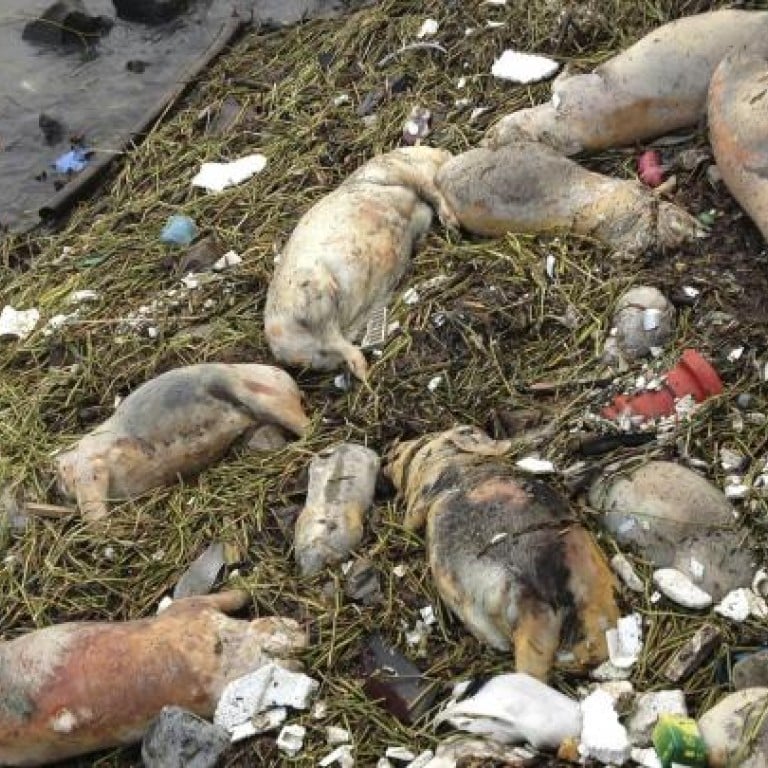
Number of dead pigs found in Shanghai river rises to 3,323
Fears over drinking water after discovery of rotting animals
Chinese officials have found a total of 3,323 dead pigs in a Shanghai river as of Monday afternoon and discovered swine virus in one of them, but they have stressed that the disease is not known to be infectious to humans.
The virus is known as Pocine Circovirus type 2, or PCV-2, a statement posted on Shanghai Agricultural Commission’s official account on China’s Twitter-like Sina Weibo said on Monday morning. The statement stressed the virus is not known to cause disease in humans but noted China had seen an increasing occurrence of this kind of virus causing sickness in pigs.
The commission conducted tests on multiple organs from five samples, and found the virus present in one sample, while ruling out five other commonly seen diseases, it said in a statement.
The city’s water authority said it had closely monitored the quality of tap water since the dead pigs were discovered and said the water quality remained “normal”, state media Xinhua reported.
After the sick pigs died [they] just dumped them in the river…Constantly. Every day.
Based on the labels found on the dead pigs’ ears, officials said the pigs were raised in Jiaxing, Zhejiang province, which is located on the upper reaches of Huangpu River.
Jiaxing local media reports last week said more than 18,000 pigs from one village had died from illness in the last two months. The reports have sparked fears that residents dumped all of the diseased animals in the river.
CCTV reported local residents near Huangpu River saying that dumping dead, diseased pigs in the river was common practice. “After the sick pigs died [they] just dumped them in the river…Constantly. Every day,” one villager said.
“They are everywhere, and smell very bad,” another said.
“Over ten thousand pigs died, but only 1,200 of them were found in Huangpu River. Where were the rest of the dead pigs?” he asked in the post which was retweeted for more than 23,000 times as of Monday afternoon.

